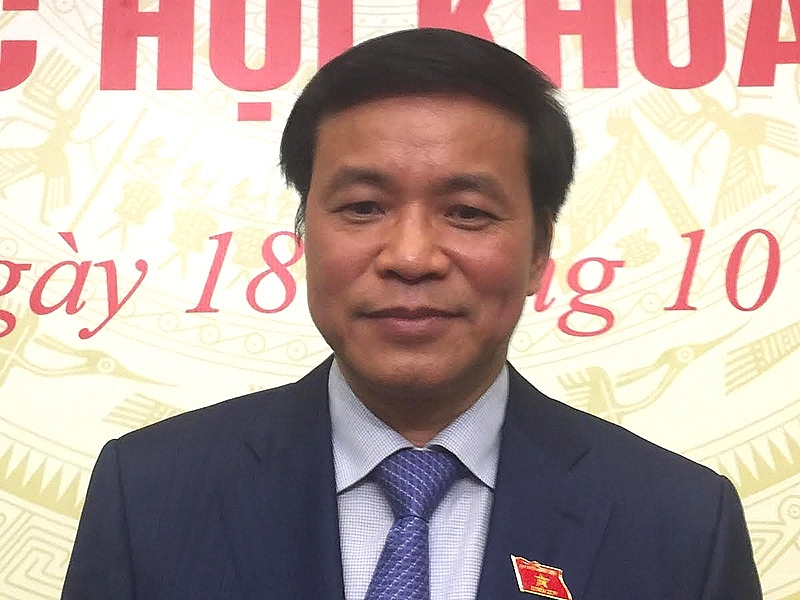CPTPP likely to be approved in mid-November
 |
| Nguyen Hanh Phuc, Chairman of the NA Office |
What is the NA’s timetable regarding the CPTPP approval?
On November 2, 2018 the State President will present a statement seeking the NA’s approval for the CPTPP and related documents.
Later on, Deputy Prime Minister and Minister of Foreign Affairs Pham Binh Minh, on behalf of the prime minister, will deliver a comprehensive report about what the CPTPP and relevant documents are.
Then, Chairman of the NA Committee for External Relations Nguyen Van Giau will present an investigatory report about ratifying the CPTPP and NA delegates will discuss this content in groups.
The discussion about the CPTPP will take place at the November 5 meeting. Then, on November 12, the NA will vote on approving the CPTPP resolution.
After Mexico, Japan, and Singapore, on October 17 the Australian Senate has also adopted the CPTPP. Vietnam will likely become the fifth nation out of the 11 member countries to ratify the landmark deal. As regulated, the CPTPP will come into force once six members ratify the agreement.
Vietnam and 10 other members have signed the CPTPP in Santiago (Chile) on March 8, 2018. Why do we still need to hold an inspection into its approval?
In light of the Law on International Conventions, the NA Committee for External Relations is held responsible for assessing the necessity of approving international conventions, compliance in making procedures proposing international convention approval, as well as its compliance with the Constitution and Vietnam’s laws and resolutions.
The Committee is also responsible for inspecting Vietnam’s capacity to directly apply the international convention in whole or in part, as well as has the mandate to request amendments, supplementation, the removal or enactment of relevant laws, circulars, and resolutions by the NA to realise these international conventions.
| Vietnam will likely become the fifth nation out of the 11 member countries to ratify the landmark deal. |
Through review and inspection, the NA will get to know how many laws and circulars must be amended and supplemented to match the international conventions that Vietnam has signed.
With the CPTPP, Vietnam has to amend and supplement about eight laws. This will be conducted following a specific roadmap. We might face potential lawsuits if we fail to keep to the schedule.
Could you elaborate on the deal’s implications on Vietnam as well as the NA’s activities to approve the CPTPP?
The CPTPP is a new-generation free trade agreement (FTA) with sweeping impacts across the board. With respect to import activities alone, right after the agreement comes into force, most goods from the 10 member countries will flow into Vietnam free of import tariff. This will have tremendous effects on domestic production and business, especially for agricultural production in which Vietnam enjoys strong export advantages.
The question is whether Vietnamese agricultural products, seafood, and woodwork retain their competitive advantages after Vietnam removes tariffs on the products from the 10 CPTPP member countries.
If we lose these advantages, participating in the CPTPP would affect 20.7 million Vietnamese people currently working in these areas, which accounts for more than 38 per cent of Vietnam’s total workforce, as well as affect the life of over 61 million peoples living in rural areas, equal to 64.5 per cent of the Vietnamese population.
As for exports, after the CPTPP comes into force, Vietnamese export items will also be entitled to zero per cent tariff. The benefits will be enormous if Vietnamese export items enter the markets of CPTPP member countries. But how Vietnamese companies could avail themselves of the advantages needs further careful consideration.
As the implications are so wide and deep, NA delegates need time for discussion to be able to present suitable measures helping Vietnam make use of the advantages while alleviating limitations from this landmark deal.
What the stars mean:
★ Poor ★ ★ Promising ★★★ Good ★★★★ Very good ★★★★★ Exceptional
Related Contents
Latest News
More News
- VinaCapital launches Vietnam's first two strategic-beta ETFs (February 26, 2026 | 09:00)
- PM sets five key tasks to accelerate sci-tech development (February 26, 2026 | 08:00)
- PM outlines new tasks for healthcare sector (February 25, 2026 | 16:00)
- Citi report finds global trade transformed by tariffs and AI (February 25, 2026 | 10:49)
- Vietnam sets ambitious dairy growth targets (February 24, 2026 | 18:00)
- Vietnam, New Zealand seek level-up in ties (February 19, 2026 | 18:06)
- Untapped potential in relations with Indonesia (February 19, 2026 | 17:56)
- German strengths match Vietnamese aspirations (February 19, 2026 | 17:40)
- Vietnam’s pivotal year for advancing sustainability (February 19, 2026 | 08:44)
- Strengthening the core role of industry and trade (February 19, 2026 | 08:35)

 Tag:
Tag:























 Mobile Version
Mobile Version